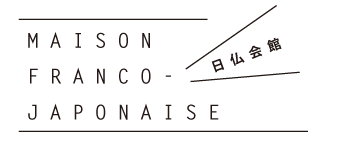vendredi 20 septembre 2024
Being Oddly Nested: Anthropology of the Nuclear Energy Machine views from the margins (previous title: A global anthropology of radioactivity: local and relational perspectives from Japan and France)
en anglais sans traduction
| vendredi 20 septembre 2024 / 18 h - 20 h | |
| room 601 & online | |
| Yasushi Uchiyamada (Professor Emeritus, University of Tsukuba) |
|
Onsite: please register by clicking on the Inscription button at the top of this page. Online: please register via this Zoom link. After the 3/11, the earthquake and tsunami of 2011, I began visiting Sanriku—the northeastern coast of Honshu destroyed by the great tsunami—in order to conduct fieldwork with the aim of learning about people’s knowledge on their Umwelt (their surrounding environment) with particular reference to great tsunamis. I was astounded by the scale of destruction of towns after towns along the long coastal zone, but I soon witnessed local people’s resilience vis-à-vis the forces of tsunamis; by the autumn of the same year I was observing positive signs of fukkō or the reconstruction of daily lives here and there: they are after all the inhabitants of the open environment where tsunamis have recurred, with a stark contrast with Fukushima devastated by the nuclear accident where the state of emergency was/is still in place. There was no sign of fukkō there. What then makes Fukushima so different? I took off a different journey into the unknown terrain of lifeworlds contaminated by radioactivity of radionuclides emitted from the supposed to be closed nuclear reactors in the summer of 2013. Nuclear reactors as well as other nuclear facilities are supposed to be closed systems. We are assured by the operators and the State that they are not open to the environment. But after the nuclear accident of the Fukushima Daiich Nuclear Power Plant (“1F”), especially after the melting down of the three reactors and subsequent explosions, the system has been plainly open. After the accident, I leant that engineers from Areva (now Orano, founded by the French CEA) were staying in Onahama, about 80kms south of 1F. They were there to install a water treating system, the aim of which was to remove radionuclides from the overflowing contaminated water. The system didn’t work. But this fact made me aware of the omnipresence of collaboration amongst American, British, French and Japanese nuclear industries: the 1F nuclear power plant comes from the American GE, and Americans including divers used to come to Fukushima for the maintenance work; the MOX fuels burnt in the reactor 3 were processed either in La Hague and Marcoule in France or in Sellafield in Britain; the first commercial nuclear reactor in Japan came from Sellafield, where scientists and engineers who were hired by the Manhattan Project during the WWII worked during its early and glorious years. Now dysfunctional Fast Reactor Monju was constructed with the help of the CEA, and the nuclear reprocessing plant in Rokkasho is said to be a clone of that in La Hague, and Orano (formerly Areva) is decommissioning the two reprocessing plants at Sellafield, to name but only a few. My anthropological journey led me from Fukushima to La Hague, to Sellafield, to New Mexico, to uranium mines in Mounana in Gabon, to the Gambier Islands near the nuclear testing sites in French Polynesia where I encountered various nested nuclear beings. I shall share with you the images and experiences of these nested beings viewed from the margins. Why from the margins? First, nuclear parks, nuclear fuel reprocessing plants, nuclear waste storage facilities, geological disposal sites, nuclear testing sites, etc. are all located in the margins, whereas their fruits are consumed in the metropole. Second, the voices and the views of those who are affected in the margins are lopsidedly underrepresented. Yet, we are all nested. Welcome to the unknows without-within!
Yasushi Uchiyamada(内山田康)is a social anthropologist who is Professor Emeritus of the University of Tsukuba. He read philosophy at ICU, then theology (dropped out), then worked in Mozambique and in Ethiopia during the famine years of mid-1980s, then studies food policy in Swansea, then political economy in Norwich, and finally obtained Ph.D. in anthropology from the LSE. Formerly Lecturer in Anthropology at the University of Edinburgh, Professor of Anthropology at the University of Tsukuba. His research includes, Untouchables of South India, Anthropology of Art, Modernity, the State, and Marginality. His publications include,『原子力の人類学』(The Anthropology of Nuclear Power) 2019,『放射能の人類学』(The Anthropology of Radioactivity) 2021,『美しい顔』(Beautiful Face) 2024. He is currently working on a book on untouchables' experience of modernity in Kerala, South India entitled 『他人の庭でひる寝する女』(A woman who takes a nap in another's garden).
Speaker: Yasushi Uchiyamada(Professor Emeritus, University of Tsukuba) |
* À l'exception des séminaires fermés de recherche ou des événements exceptionnels requérant une inscription payante, l'accès aux manifestations de la MFJ est libre et gratuit. Prière de vous inscrire.
Agenda du Bureau Français > septembre 2024












